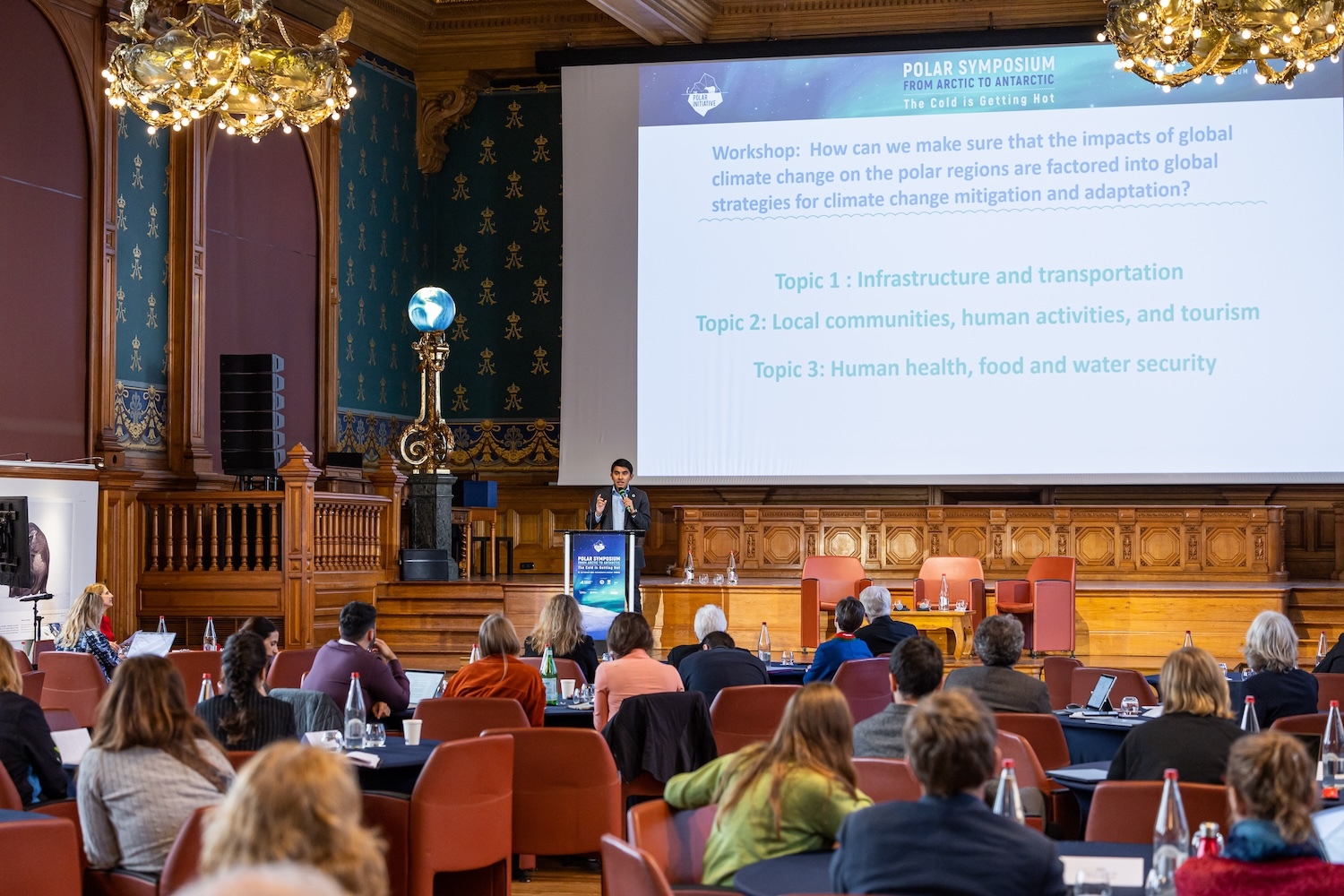
Highlights of the 2nd Scientific Symposium "The Cold is Getting Hot: From Arctic to Antarctic"
Monaco
Events
Press release
Initiative
As part of its Polar Initiative, the Prince Albert II of Monaco Foundation co-organized the second edition of its Scientific Symposium on Polar Change "From Arctic to Antarctic" on February 22 and 23, alongside the Scientific Committee on Antarctic Research (SCAR) and the International Arctic Science Committee (IASC), in collaboration with the Oceanographic Institute of Monaco, the Centre Scientifique de Monaco, the European Polar Board and the World Economic Forum. The event was generously supported by the Fondation Albédo pour la cryosphère.
On February 22 and 23, 2024, the second edition of the Polar Symposium: from the Arctic to the Antarctic "The Cold is getting Hot!" brought together close to 120 leading scientists at the Oceanographic Museum to better understand the phenomena common to both poles, identify their effects on our planet as a whole, and propose appropriate responses.
This second edition brought together international scientists, representatives of indigenous peoples, representatives of non-governmental organizations and political decision-makers to discuss the challenges facing the polar regions and their impact on a global scale.
In His opening address, HSH Prince Albert II of Monaco underscored the importance of the polar regions as precursors to climate change. This importance was recognized early on by the Prince Albert II of Monaco Foundation, which identified the polar regions as priority areas for action before dedicating an initiative to them in 2022. Since 2006, nearly 60 projects have been supported in these areas, representing a financial commitment of 6 million euros.
The Sovereign further emphasized the key role of science in effective conservation action, but also the need to step up our ambitions in response to the urgency of the situation. "Faced with these threats, it is important that coordinated and ambitious action be implemented. We need to implement as widely as possible the only measures we know are effective, which consist of marking out targeted exclusion zones, adapted to the current threats and likely to have a real impact in terms of protection and regeneration. We need to do this together, by pooling our expertise, by using up-to-date knowledge, and by listening to the needs and competencies of the indigenous populations too, especially in the Arctic. More than ever before, they need to be fully involved in these discussions and decisions", concluded HSH Prince Albert II of Monaco.
H.E.
Mr. Ólafur Ragnar Grímsson, Chairman of the Arctic Circle and former President
of Iceland, pointed to the window of opportunity that has opened up on the
international agenda, with polar issues being given greater consideration, and
urged us to pursue our commitment.
The symposium was also marked by the celebration of the FPA2-SCAR and FPA2-IASC Fellowship programmes awards ceremony, honouring outstanding contributions to polar research and conservation.
Built around round tables and workshops, participants were able to collectively define priority topics for research and governance in the polar regions, and propose concrete courses of action.
Two
main themes were addressed:
The
development of polar initiatives for the next decade and collaboration.
Adaptation
and mitigation strategies for emerging challenges in the polar regions, linked
to the impact of human activities such as fishing, tourism and mining.
The Symposium's various sessions highlighted a number of messages that will serve as the basis for building a multi-year roadmap for the Polar Initiative.
- Long-term planning and funding are absolutely essential to understanding the planet for the future,
- Increase synchronized and international efforts over the next decade. Continued and developed cross-border collaboration is crucial to understanding the polar regions,
- Promote action-oriented communication on the results of polar research and their global impact,
- Ensuring equitable participation of all stakeholders and rights holders in polar research improves the quality of scientific research,
- Ensure a collaborative approach to conservation in the polar regions, including indigenous knowledge.
A
summary of the workshops will be published shortly. In the meantime, click here
to watch the Symposium replay.
Photo credit: ©Philippe Fitte / FPA2





















